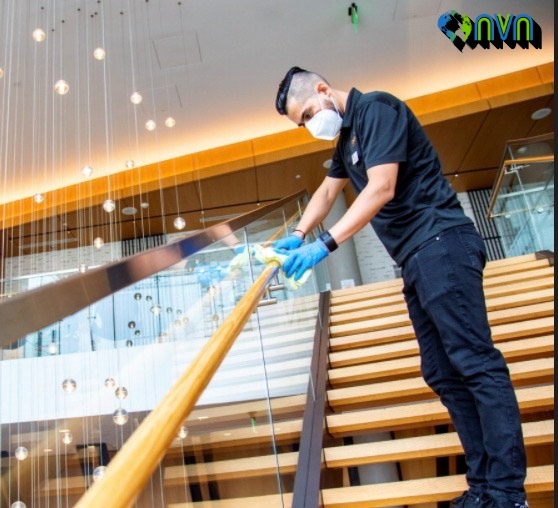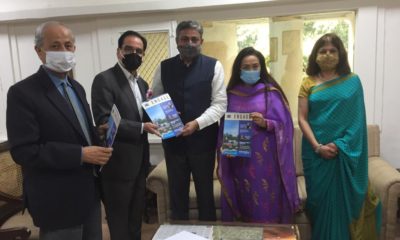Business
Rebuilding Trust With Travelers Key To Reviving The Hospitality Industry

Hilton – Why Rebuilding Trust with Travellers is the Key to Reviving the Hospitality Industry
The outbreak of Coronavirus in India and the lockdown imposed by the government has crippled every industry in the country, and among the hardest hit is the hospitality industry.
After an extended lockdown period, businesses are finally opening up in the Unlock-5 and the hospitality industry is gradually rekindling its operations. It is extremely crucial for them to rebuild traveller’s confidence and trust, reassuring them that it is indeed ‘safe’ to travel again.
This is easier said than done as customers are more cautious than ever before. Hotels need to make continuous efforts to stay afloat post-pandemic. They need to adapt to the new normal and include ‘safety’ in their hospitality DNA for the sake of their survival. Here are some strategies that will help to rebuild the guests’ trust:-
Upgrading technology systems:
While social distancing is the new normal, hotels need to adopt hospitality management systems which will help them to adapt to the concept of remote working. They can use cloud-based property or revenue management systems to control their on-ground operations. For instance- check-ins, check-outs, and digital payments of food, beverages can be processed digitally, through the app the guests should be able to control all switches in the room -from room temperature to the TV remote- to avoid touching devices.
Maintaining hygiene and sanitation protocol:
Amidst a pandemic, consumers are extremely concerned about their health and hygiene. It is of utmost importance that hotels provide physical evidence to their guests, of all the necessary precautions that they are taking to show that they value their customer’s well-being the most. This can be done by checking all visitors for fever with an infrared thermometer, keeping hand sanitizers at the reception, elevator lobbies, and guest rooms; placing air purifiers in rooms; training the staff, and ensuring that they wear masks and gloves at all times. Hotels can also make use of AI technology and have robots deliver room service and do the cleaning. Alongside this, in the beginning, hotels can alter the designs of their lobbies, restaurants, and banquets by limiting the availability of tables.
Whilst conducting all these procedures we shouldn’t forget that the hospitality industry is about making people feel warm and welcome.
Catering to newer audiences :
According to research, 50% of millennials will choose to travel post-pandemic as millennials are the most eager to get back out and explore the world post-pandemic. Recently, a large percentage of people have been opting for staycations to break the routine of work-from-home especially in North India so hotels should take initiative in promoting the “staycation or holistay concept”.
Millennials tend to focus on exploring the world and obtaining the “local and authentic experience” so hotels should build transparency and trust as this will help them reach a wider target audience. Since millennials are tech-savvy hotels should also focus on 24/7 service mobile-first guest experience, personalized deals, and offers, etc.
Maintaining and nurturing relationships:
It is critical that hotels keep in touch with their loyal customers and address them via emails, newsletters. They should reassure them and be polite, respectful, and panic-free in all their public communication, especially during the pandemic. They should also talk about the initiatives and campaigns they are taking up to help out during the pandemic.
Safety and hygiene matter a lot to guests. According to PwC Research, “43% of consumers are likely to spend more to confirm physical distancing on their next flight. Families with children are even more safety-conscious, with 60% willing to pay more.” So hotels can also provide services like private shuttles, choice of their position within the property relative to entrances and elevators, etc.
The next few months are going to be difficult so it is critical that the hospitality industry. Thus, it is important for hotels to shape their recovery strategy and plan for the initial rebound in travel demand. The task at hand is difficult but not impossible, with continuous efforts hotels can restore the confidence of their guests and provide them with a hospitable and hygienic experience






























